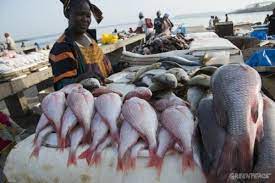The inconsiderable move by authorities placing untimely one restriction on large scale fishing in without tax exceptions has been described by investors in the industry as an unfair treatment to their businesses and investment.
Businesses including those investors in the fisheries industry registered with the appropriate agencies and regularly pay their taxes whether their establishments are running or not, as long as they are fully registered, they are obliged to honour their tax responsibilities and regularly their employees’ NASSIT contributions on a monthly basis as mandated by law.
These come along with their income and pay as you earn and others that cost them colossal amount of money that are hardly recovered from proceeds of their business lines.
And expenses during the unfavourable sanction won’t recovered investors’ expenses at all, at the detriments of investors and their various businesses…they won’t laydown staff during this period, nor refuse to pay them their salaries due to halt in fisheries industry operations in the country. Even amidst the unfair lockdown, they still to remit salaries to staff various accounts in honour of their obligations to their staff.
For the tax collectors and staff want to see and hear at the end of the month, is that their salaries are always ready in their accounts with taxes fully paid for and on their behalf ban or not.
Government’s insubstantial reasons for the premature break on industrial fishing are for couple purposes.
But according to the Fisheries and Marine Resources Minister, Emma Kowa Jalloh the ban is geared towards replenishing fish sticks in Sierra Leone waters, create the enabling environment for fishers and companies investing in the sector, albeit for the benefits of Guinean fishing companies through their unlawful poaching, harmonize sales in the fish trade, preserve fish stocks. If at all we were to go by the 12% it adds to the Gross Domestic Products, then why halt the industry for a month. Is that not a loss to the economy? All of which are not enough reasons for placing a month ban on the industry without due considerations of the level of financial investment that have been made in the sector.
This same idea was pushed at fisheries’ investors a year ago which led to unsuitable withdrawals of so many fishing companies who had wanted to invest hugely in the country’s sector.
Moreover, the ban in just less than two weeks has raised several alarms of scarcity of fish products in markets across the country where fish forms a key protein component of every daily diet of consumers.
The closure of the industry without due considerations of its effects on the sector’s, investments, businesses and the national economy, has so far create a huge deficits to investors, down to the least small scale fish traders in the markets countrywide.
Again, to government’s weak reasons ranging from fixing up the ecosystem; put in place a responsible fishing measures and practices enhance conservation, raise revenue and halt exploitations in the industry remain unconvincing for placing an untimely ban on the trade










